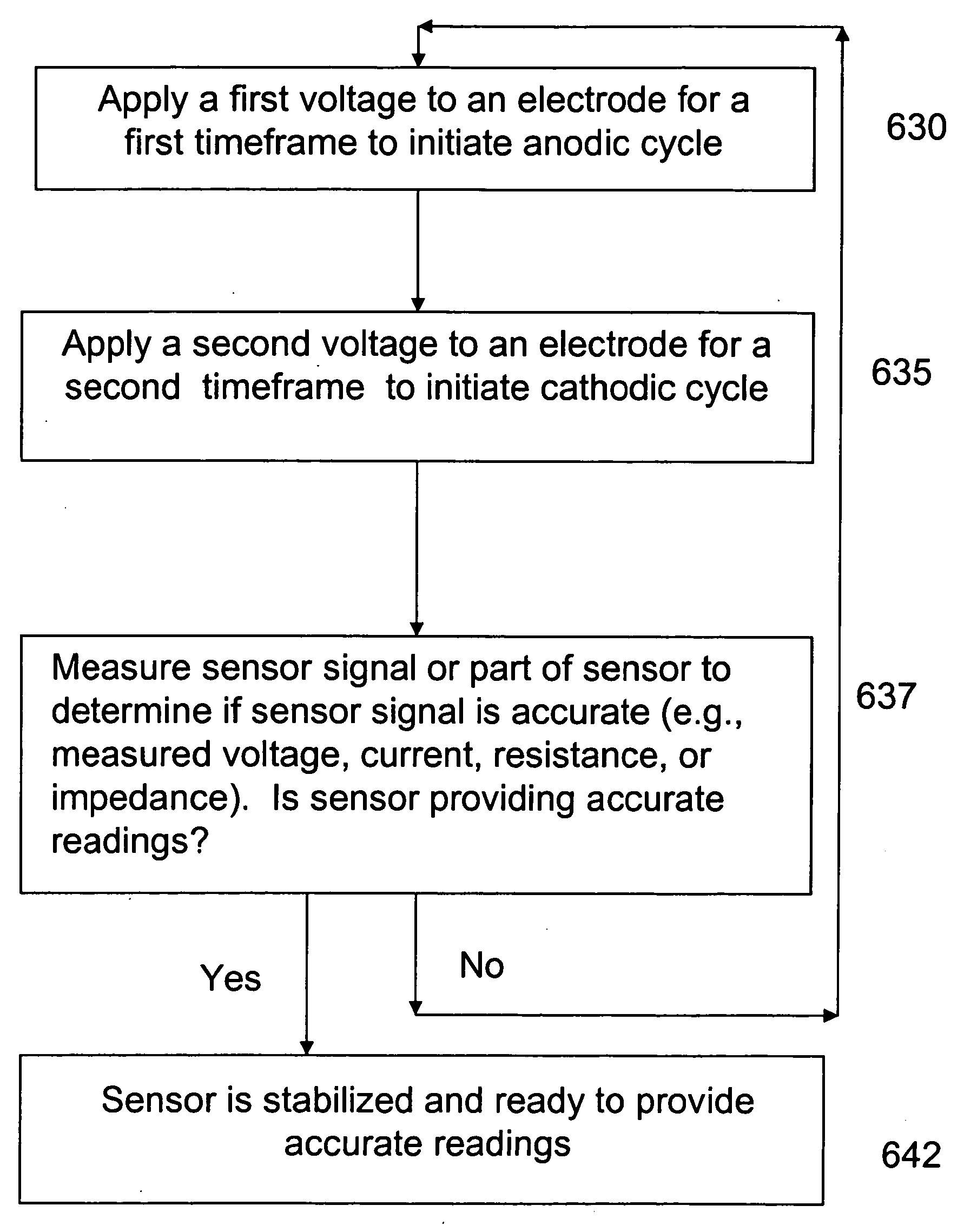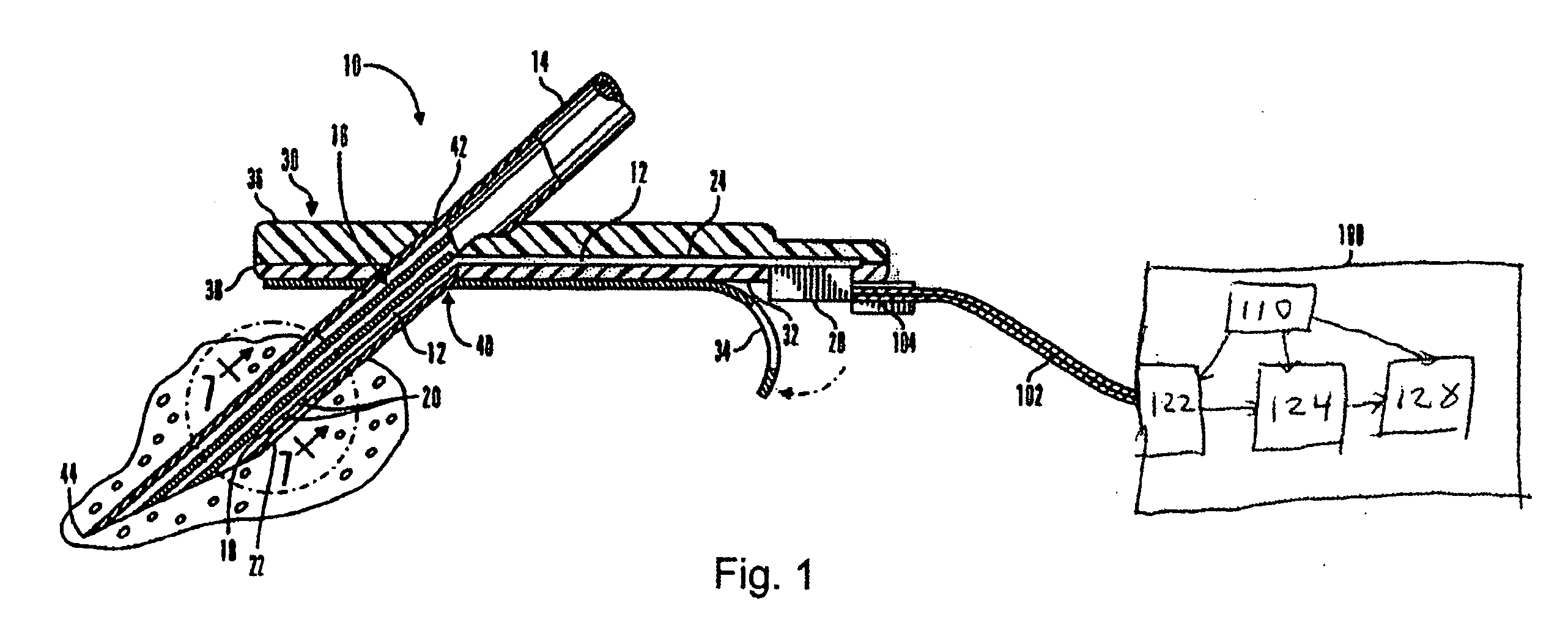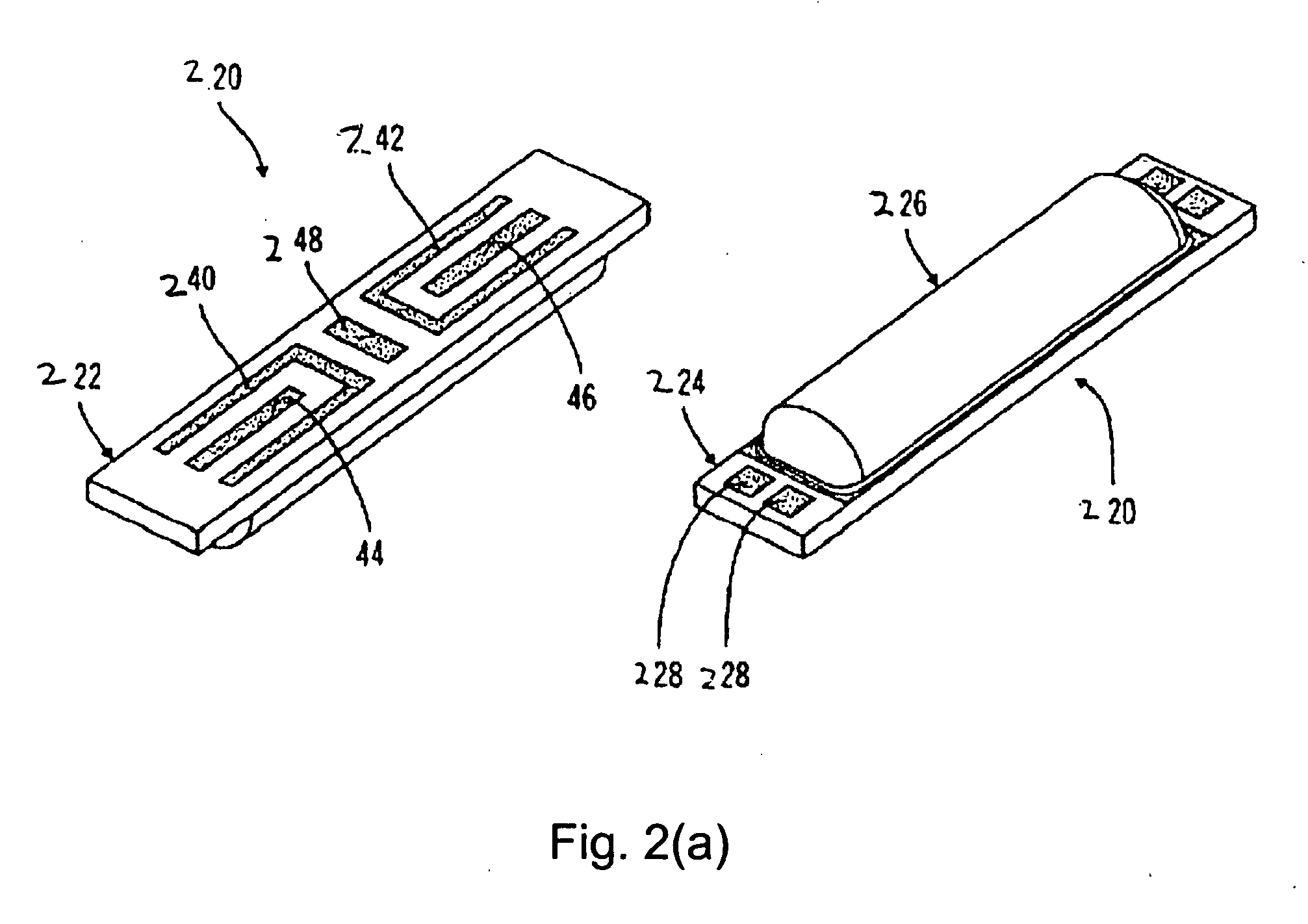Method of and system for stabilization of sensors
a technology for stabilizing sensors and sensors, applied in the field of methods and systems for stabilizing sensors, can solve the problems of patient inability to utilize a continuous glucose measurement system, glucose sensor not operating in a stable state, inconvenient patient, etc., and achieves faster run-in time, less background current, and better glucose response
- Summary
- Abstract
- Description
- Claims
- Application Information
AI Technical Summary
Benefits of technology
Problems solved by technology
Method used
Image
Examples
second embodiment
[0107]FIG. 14(b) illustrates a combination of a hydration method and a stabilization method where feedback is utilized in the stabilization process. A sensor is connected 1405 to a sensor electronics device. An AC signal (or a DC signal) is applied 1411 to the sensor. In an embodiment of the invention, the AC signal (or the DC signal) is applied to an electrode of the sensor, e.g. the reference electrode. A impedance measuring device (or resistance measuring device) measures 1416 the impedance (or resistance) within a specified area of the sensor. In an embodiment of the invention, the impedance (or resistance) may be measured between the reference electrode and the working electrode. The measured impedance (or resistance) may be compared 1421 to an impedance or resistance value to see if the impedance (or resistance) is low enough in the sensor, which indicates the sensor is hydrated. If the impedance (or resistance) is below the impedance (or resistance) value or other set criteri...
third embodiment
[0108]FIG. 14(c) illustrates the invention where a stabilization method and hydration method are combined. In this embodiment of the invention, the sensor is connected 1500 to the sensor electronics device. After the sensor is physically connected to the sensor electronics device, an AC signal (or DC signal) is applied 1510 to an electrode (e.g., reference electrode) of the sensor. At the same time, or around the same time, the microcontroller transmits a signal to cause the DAC to apply 1520 a stabilization voltage sequence to the sensor. In an alternative embodiment of the invention, a stabilization current sequence may be applied to the sensor instead of a stabilization voltage sequence. The detection circuit determines 1530 what level of an AC signal (or DC signal) is present at an input terminal of the detection circuit. If there is a low level AC signal (or DC signal), representing a highly attenuated AC signal (or DC signal), present at the input terminal of the detection cir...
PUM
 Login to View More
Login to View More Abstract
Description
Claims
Application Information
 Login to View More
Login to View More - R&D
- Intellectual Property
- Life Sciences
- Materials
- Tech Scout
- Unparalleled Data Quality
- Higher Quality Content
- 60% Fewer Hallucinations
Browse by: Latest US Patents, China's latest patents, Technical Efficacy Thesaurus, Application Domain, Technology Topic, Popular Technical Reports.
© 2025 PatSnap. All rights reserved.Legal|Privacy policy|Modern Slavery Act Transparency Statement|Sitemap|About US| Contact US: help@patsnap.com



